Melbourne mum diagnosed with same rare cancer that claimed life of her husband
A Melbourne mum says telling her children that she had been diagnosed with the same rare cancer that claimed the life of their dad was “profoundly difficult”, as she fights for vital research into the incurable disease.
Victoria
Don't miss out on the headlines from Victoria. Followed categories will be added to My News.
A Melbourne mum who lost her husband to the complex blood cancer myeloma has been diagnosed with the same terrible disease.
Marlo McCarthy and Tony Walshe are one of the few young couples in the world to have been diagnosed with myeloma, which sadly has the lowest survival rate of all blood cancers.
But Ms McCarthy, 51, says while it came as a shock she believes she is going to be OK.
Her goal now is to raise awareness and money for research because she says most people have never heard of myeloma and it urgently needs donations to support vital research over the next decade.
Like legendary TV sports presenter Sandy Roberts, she wants to change that.
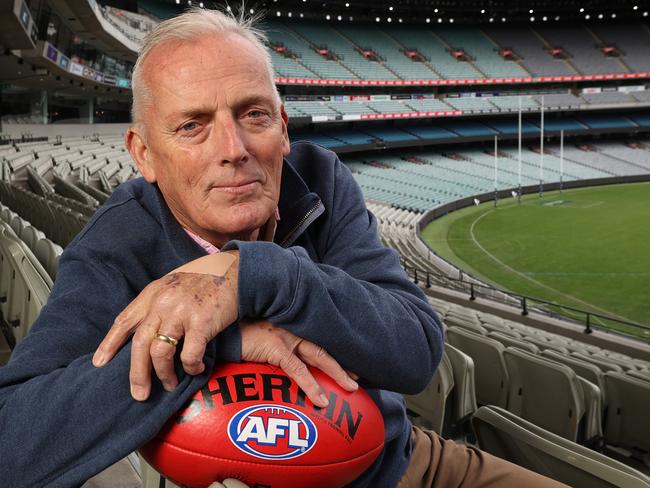
Roberts revealed in 2023 he has the same incurable cancer and went public with his personal battle to raise awareness and research funds. He is now an ambassador for Myeloma Australia. This is Australia’s only myeloma charity, and is not government funded.
In 2015 Mr Walshe lost his fight with the disease that causes cancerous plasma cells to accumulate in bone marrow that then crowd out healthy blood cells. It weakens the immune system, destroys bones and reduces kidney function.
Around 27 per cent of people die within 18 months of diagnosis, just 55 per cent will live more than five years.
Ms McCarthy says the government needs to “notice us”, invest in research and make new drugs, such as daratumumab, more widely available.
This is a targeted cancer drug that kills myeloma cells, but it is not a silver bullet for all patients and is only available on the PBS for those following their first relapse.
My great love
“Tony was my great love,” Ms McCarthy said.
“Right from the start I knew he was the man I would marry.
“I’d moved to Melbourne to go to university and I was working as a nanny for a lovely English couple. They decided to go back to England to introduce their baby daughter Rosie to her grandfather and her uncle, Tony.
“They invited me to go and I stepped off the plane and Tony was there. We fell in love.”
Two weeks after Ms McCarthy returned home Mr Walshe flew to Melbourne and proposed.
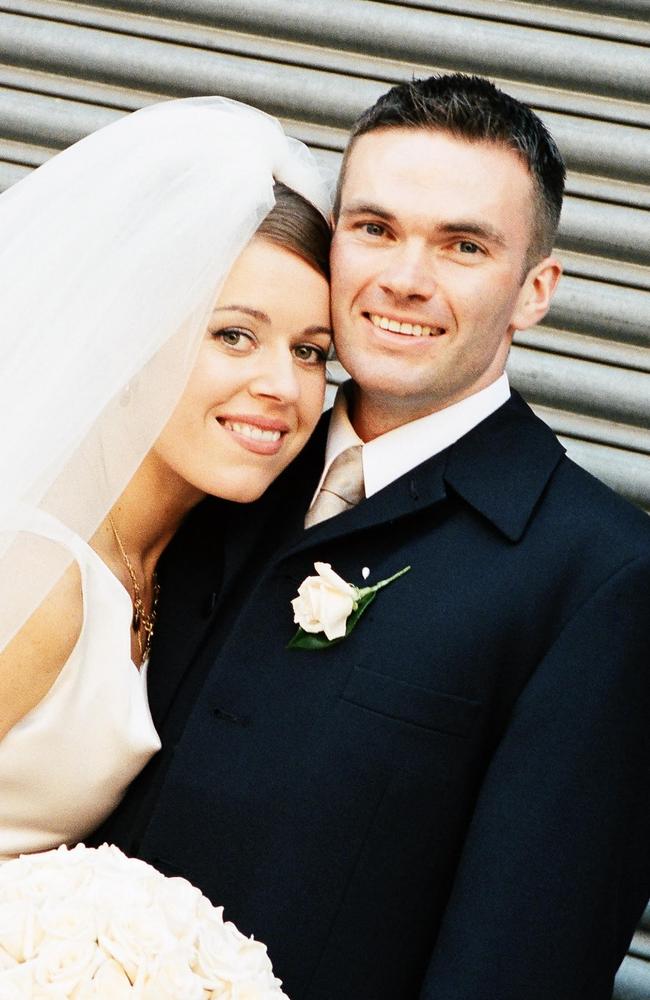
The young couple settled into life in Melbourne.
Mr Walshe did a Masters degree and joined a pharmaceutical company and Ms McCarthy a psychology degree, a diploma in interior design and a diploma in learning support.
“We were so happy,” she said.
“We were busy renovating houses and thinking about a family. Tony said he always wanted two sons.”
She wonders now if the three houses they renovated could have contributed to them developing a similar aggressive form of myeloma.
“The explanation for us was that we have been exposed to some sort of environmental factor that may have contributed,” Ms McCarthy said.
While the cause of the complex disease is not fully known, there have been several published studies of first responders and people who worked to clear the World Trade Centre site after the 9/11 attacks showing a more than two-fold increased risk of myeloma.
Family life
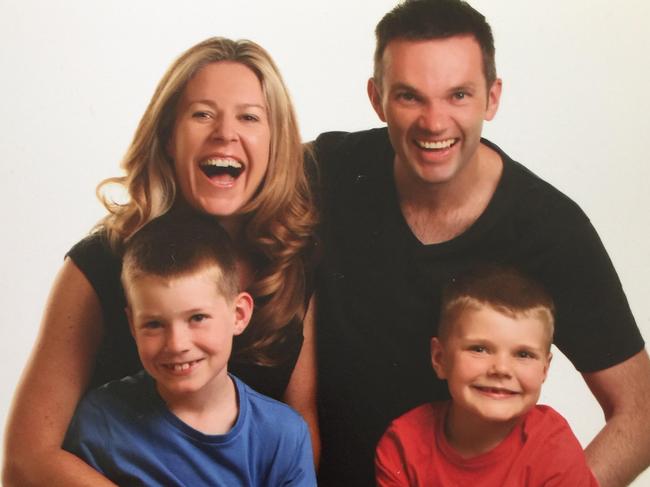
In 2006 the couple’s first son Freddie was born followed 17 months later by George.
“I worked part time to be at home with the boys, now with my diagnosis, I’m grateful for every minute that I’ve spent at home with them,” Ms McCarthy said.
In 2014, Mr Walshe developed a virus he struggled to shake off. When he complained of pain around his ribs, doctors thought it might be pneumonia but a blood specialist did further tests and diagnosed myeloma.
“We didn’t know what myeloma was,” Ms McCarthy said. “Then we read life expectancy was three years.”
Mr Walshe started treatment that included a stem cell transplant just as George was starting prep and Freddie year 2.
“It looked like Tony was in remission and then a month later he relapsed and it was a firestorm from there,” Ms McCarthy said.
After one particularly tough day he told her he’d had enough.
“He always called me sweetheart and he had a beautiful, measured view of the world. But this disease mystified him,” Ms McCarthy said.
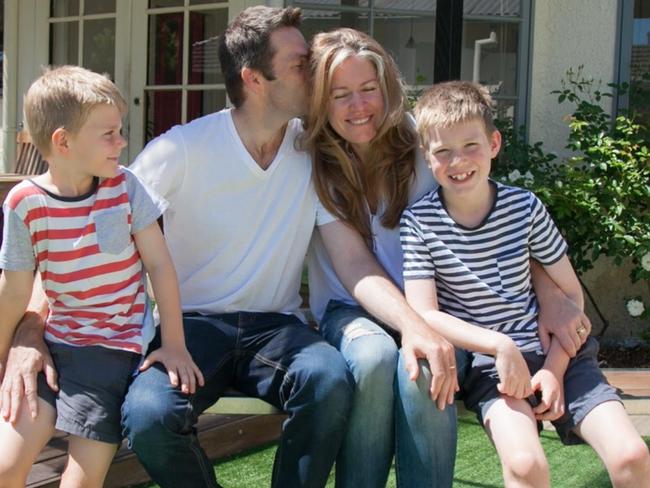
“Tony said to me ‘I am useless here, I am just taking up a hospital bed. I can’t be a partner to you, I can’t be a father to my boys, this just seems pointless’ and I said to him, please don’t leave me.
“He hugged me and said ‘OK I’m going to try to stay’. Tony had a second stem cell transplant before developing sepsis. Unfortunately it failed to bring his disease under control so the planned donor transplant was unable to go ahead.”
End of the road
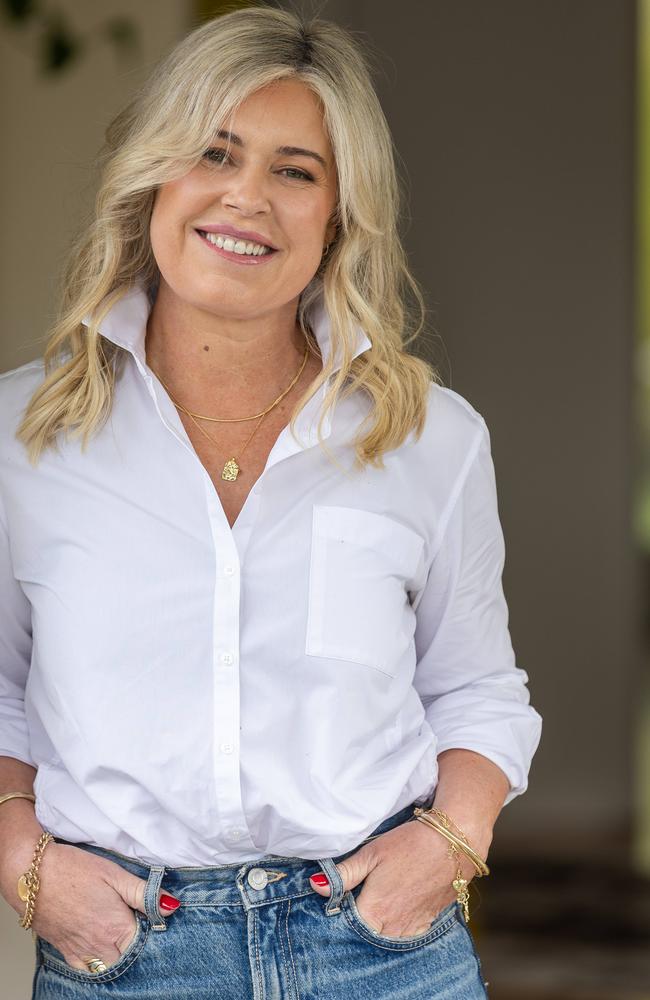
Ms McCarthy said they knew they had come to the end of the road.
“Dear friends in our school community organised for us to take the boys to the Gold Coast for one last holiday,” she said.
“We arrived on the Saturday and Tony had a nasty pain in his back. I woke up at 2am and he was staggering around the room, he said he couldn’t feel his left leg and his eyes were wild with pain.
“An ambulance took him to hospital and that was the last time Tony was able to walk. They found a tumour the length of his thoracic spine. He was a paraplegic.”
The family returned to Melbourne where Mr Walshe was admitted to hospital.
“That week he said ‘Sweetheart I think it is time to organise a hospice’, but I was determined to take him home,” Ms McCarthy said.
“We had support, but I cared for him at home and it was the most profoundly sad time but also the most beautiful because I saw such humanity, just the extraordinary kindness of people.”
Mr Walshe died at home on November 20, 2015, in the arms of his wife, kissed goodbye by Freddie and George. He was 44.
For the next eight years Ms McCarthy focused on keeping fit and raising two healthy teenage boys, young men she says are mature, compassionate and genuine. Freddie, the “spitting image of his dad” is just over 200cm tall and doing his VCE. George, who looks more like his mum, is in Year 10.
Shared experience
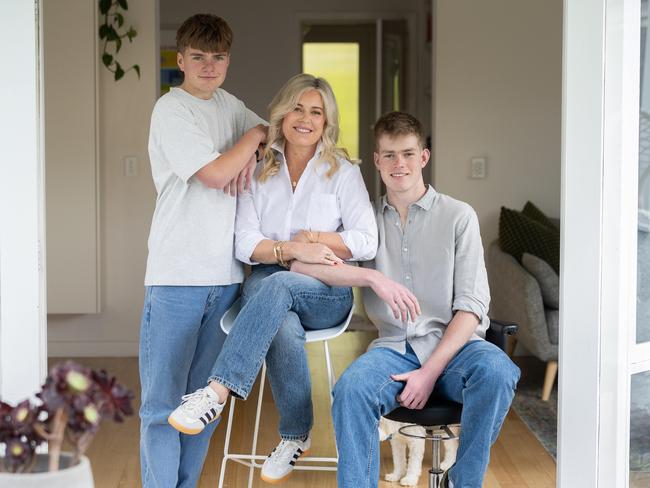
Then the unthinkable. Last year Ms McCarthy was confronted with her own myeloma diagnosis after noticing a niggling pain in her rib.
She had blood tests and an X-ray that revealed she was low in iron. She said intuition kicked in and she asked the doctor to send her the full blood results.
“I knew I was in trouble so I made an appointment to see Tony’s haematologist. At that first visit I said I’m Tony Walshe’s wife, and he just sat down in his chair and said, wow. He thought I had smouldering (asymptomatic) myeloma.”
An MRI confirmed the diagnosis and also revealed Ms McCarthy’s spine was riddled with fractures from her shoulder to her hip.
“I remember thinking this is the one part that I didn’t share with Tony, the actual symptoms, and now it is like I’ve shared every experience with him.”
When the time came to tell her sons Ms McCarthy said it was the hardest thing she had ever had to do.
“I thought telling them that their dad was going to die was the most difficult conversation I’d ever have, but telling them that I was sick with the same disease was profoundly difficult,” she said.
“But they were magnificent.”
Ms McCarthy is now undergoing treatment and is on a clinical trial with an immunotherapy drug.
She believes if she had been able to access daratumumab it could have been life-changing for her.
As to the future, she in remission and looking at further options.
“I’ve learned so much from Tony’s experience,” she said.
“It’s almost like he’s showing me the way and I honestly believe I am going to be OK.”
The future
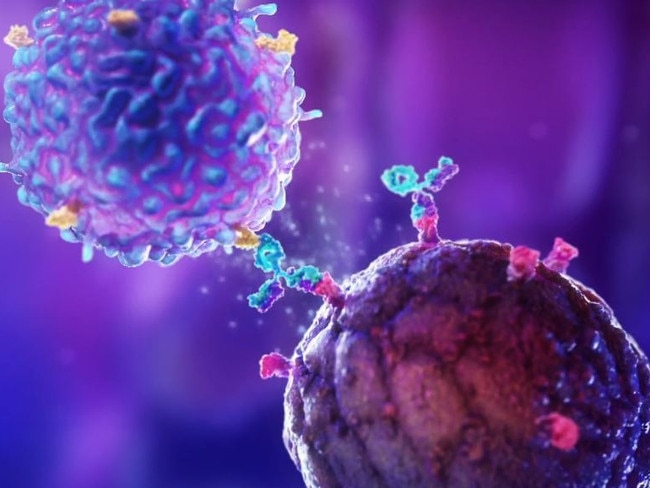
Myeloma Australia says a cure is possible, but it will take around $10m in research funding each year for the next 10 years.
“We are seeing advancements across the world, but we are falling behind,” Mark Henderson said.
The CEO of Myeloma Australia, he said the organisation does not attract any Commonwealth Government funding and that it was sobering to think that 50 people this week will be diagnosed with myeloma and most will have never heard of it.
“We must do better. We need to act with urgency to save the lives of Australia’s myeloma community. This will take action from the federal government down,” he said.
To donate visit myeloma.org.au/donate/
Buy a Pin
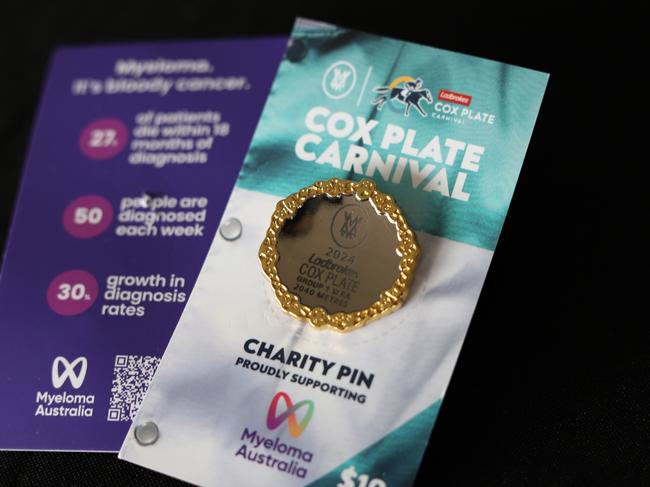
The Cox Plate Charity Pin is Moonee Valley Racing Club’s key fundraiser during the Spring Racing Carnival. For the next three years Myeloma Australia will be the beneficiary of the sale of the collectable and popular $10 pins.
You can buy them at Moonee Valley races or through the Moonee Valley merchandise shop
What is myeloma?
• A complex disease that develops from malignant plasma cells in the bone marrow
• There is no known cause, or cure
• 27 Per cent of people will die within 18 months of diagnosis
• About 22,000 Australians are living with it
• Myeloma Australia does not attract any Commonwealth Government funding.
• For more information visit myeloma.org.au/




